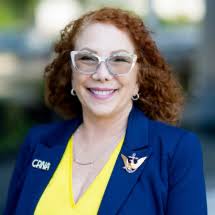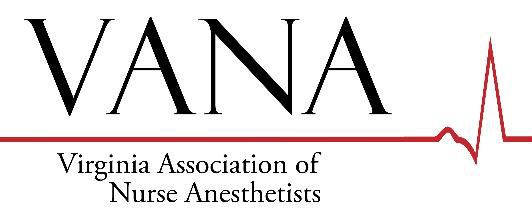Leading with Leadership: A Conversation with Debra Diaz, CRNA, DNP, APRN, FAANA, AANA Region 2 Director

This month, VANA spoke with Debra Diaz, CRNA, DNP, APRN, FAANA, and an AANA Region 2 Director about her leadership journey, the importance of leadership skills and continuous learning, as well as advocacy within practice.
As a CRNA since 1994, as well as a proud member of the Navy, I’ve always understood the importance of learned leadership as a skill, as well as the critical need for advocacy within our field of practice.
I’ve been actively involved in the Florida Association of Nurse Anesthetists (FANA), serving as president and on the board for years. Professionally, once I was no longer in active-duty service and moved to the reserves, I made the choice to move to a rural county hospital near where I grew up. The VA doesn’t do pediatrics, and I love practicing in that space. Suddenly, I had the time and space to be involved. My hospital was one of the only hospitals at the time where CRNAs were union members. So, I joined the union and joined the executive board and was able to affect change through our bargaining power. As I grew my confidence there, I realized that Florida CRNAs had a lot of issues and barriers to practice.
During my time at the Medical University of South Carolina (MUSC) I joined strategic planning committees as a student to address the same issues within SCANA in South Carolina. I found there to be overwhelming overlap in the needs of Florida and South Carolina CRNAs. I eventually joined the board and was able to affect change and increase my level of advocacy for CRNAs.
After a few years, I was encouraged to transition to AANA, recognizing that as I moved into new roles, I would be able to open critical leadership spots for newer and younger CRNAs who are interested in joining leadership.
As a FANA member, I was elected to be president of the board the year we won the right for all APRNs to be able to prescribe controlled substances. This win helped CRNAs that are in private practice, independent practice, and even though it required physician supervision, it didn’t need to be a physician anesthesiologist. That step in the right direction took 20 years to accomplish, and it was amazing to see it happen. When one group gets a win, we all get a win and we’re all closer to achieving our final goal: autonomous practice. CRNAs were able to support APRNs and create a coalition of support and progress, which really demonstrates the power of advocacy.
Now, as an AANA district board member, I recognize that I’m advocating for the needs of so many.
For VANA members, the best way to contribute to this advocacy is to maintain VANA and AANA membership. Encouraging people to step up and give their time is so critical. Of course, as a CRNA your time is so valuable, but those small, seemingly insignificant moments of advocacy with your local elected officials add up to big change over time. Sometimes, advocacy even means covering shifts for your co-workers so they can meet with legislators, donating to VANA PAC, or spending an afternoon volunteering on a committee or sending a letter of support.
This work isn’t done without each of you, but I’m willing to help. Please invite me to your events, and share your progress, your celebrations and your challenges. I’m happy to advocate for you just as you advocate for VANA. Together, we can improve anesthesia access for all Americans.

